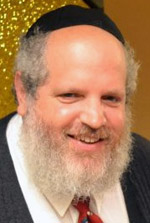
CARLSBAD, California — Wow! What a long and involved Torah reading this week! Just look at the title of this article; it took up a significant portion of this page. This week we read a double portion plus a special additional reading, which has to do with the impending month of Nissan.
Let’s start at the beginning.
The first portion we read is titled VaYakhel / And (Moses) Assembled. This portion occurred on the day after Moses descended from Mount Sinai with the second set of Tablets; the day after Yom Kippur. The second set of Tablets represented the fact that G-d had forgiven the people for the terrible sin of the Golden Calf, which we read about last week. The manner of Divine interaction with the people was re-imagined after the previous mistakes, and G-d decided that instead of His Presence being revealed continually throughout the encampment a ‘Tent of Meeting’ (aka the Mishkan / Tabernacle) would be constructed, and only in its confines would He be revealed.
Moses put out a call for the materials that would be needed in construction and the people responded. Turns out they responded so enthusiastically that within a couple of days everything that was needed had already been donated, “And more!” says the Torah. Then Moses had to put out the word that the people should stop bringing! Commentaries mention that the Jewish people are certainly unique. Last week we learned that some responded quickly to bring the gold for the Golden Calf and this week we learn they responded quickly to build G-d’s abode. Same people! Very different building projects.
The second portion is titled Pikudei / Accountings. Moses gave a precise accounting of everything that had been donated and how it had been utilized. The Tabernacle was a priceless palace built to ‘house’ the Divine Presence. The people spared no expense to make sure that it was filled to overflowing with earthly treasure. This represented the notion that the physical world is ultimately meant to reveal the Presence of the Almighty.
Imagine that!
G-d gave us the opportunity to partner with Him and reveal the perfection underlying everything. The more we connect to that underlying perfection, the more we reveal that perfection.
Together the two portions tell us that there is a power in being congregated “VaYakhel,” but that each individual counts, “Pikudei.”
The final part of the reading is called ‘Parshat HaChodesh.’ It tells us about the Mitzvah to sanctify the New Month. Being that we have a lunar calendar this commandment is of critical importance, as our holidays are based upon it. For instance Passover is on the 15th of the Hebrew month of Nissan. Interestingly, our calendar is also informed by the cycle of the seasons, which of course is related to the sun. We know that Passover is also called the Holiday of the Spring. Therefore, we add an extra month during some years so that Nissan always remains in the Spring.
In this reading we also see the commandment to set aside a lamb that would serve as the Passover sacrifice. Our Sages tell us that a miracle occurred relative to this lamb. When the Egyptians saw the Jewish people preparing the lamb they asked what the Jews were up to. Remember, the lamb was one of the gods of the Egyptians. The Jews responded that the lamb would be sacrificed to celebrate Passover, as per the command of the Creator. The blood from the lamb would be applied on the doorposts (Mezuzot) of the Jewish homes, and this would protect the people when the Egyptian first born would be struck down as the 10th plague. Surprisingly the firstborn Egyptians did not attack the Jews for sacrificing their idol, instead they fought that the Jews should be released immediately. The Jews’ willingness to endanger their lives for the service of the Almighty was a tremendous miracle. It also demonstrates that this is part of who we are as a people.
Right now we are in turbulent times. It is ironic that we will be reading a portion that describes gathering together (and its salutary effects) while carefully adhering to the mandate of social distancing. Instead of going to the synagogue this Shabbos we are told to just stay home. As Jews that means we should make sure to have a Chumash (printed Five Books of Moses) and study the portion. We also need to have a Siddur, a prayer book. So this Shabbos we can really take our time and be present in the moment devoting our attention to the Master of the Universe. Turn off that cellphone. Turn off the tv. Focus on the blessings in your life. Think about what you can do to make the world a better place.
Wishing you a peaceful and healthy Shabbos!
*
Rabbi Yeruchem Eilfort is Director of Coastal Chabads and Chabad at La Costa. Rabbi Eilfort welcomes readers’ comments and questions and may be reached at RabbiE@ChabadatLaCosta.com.